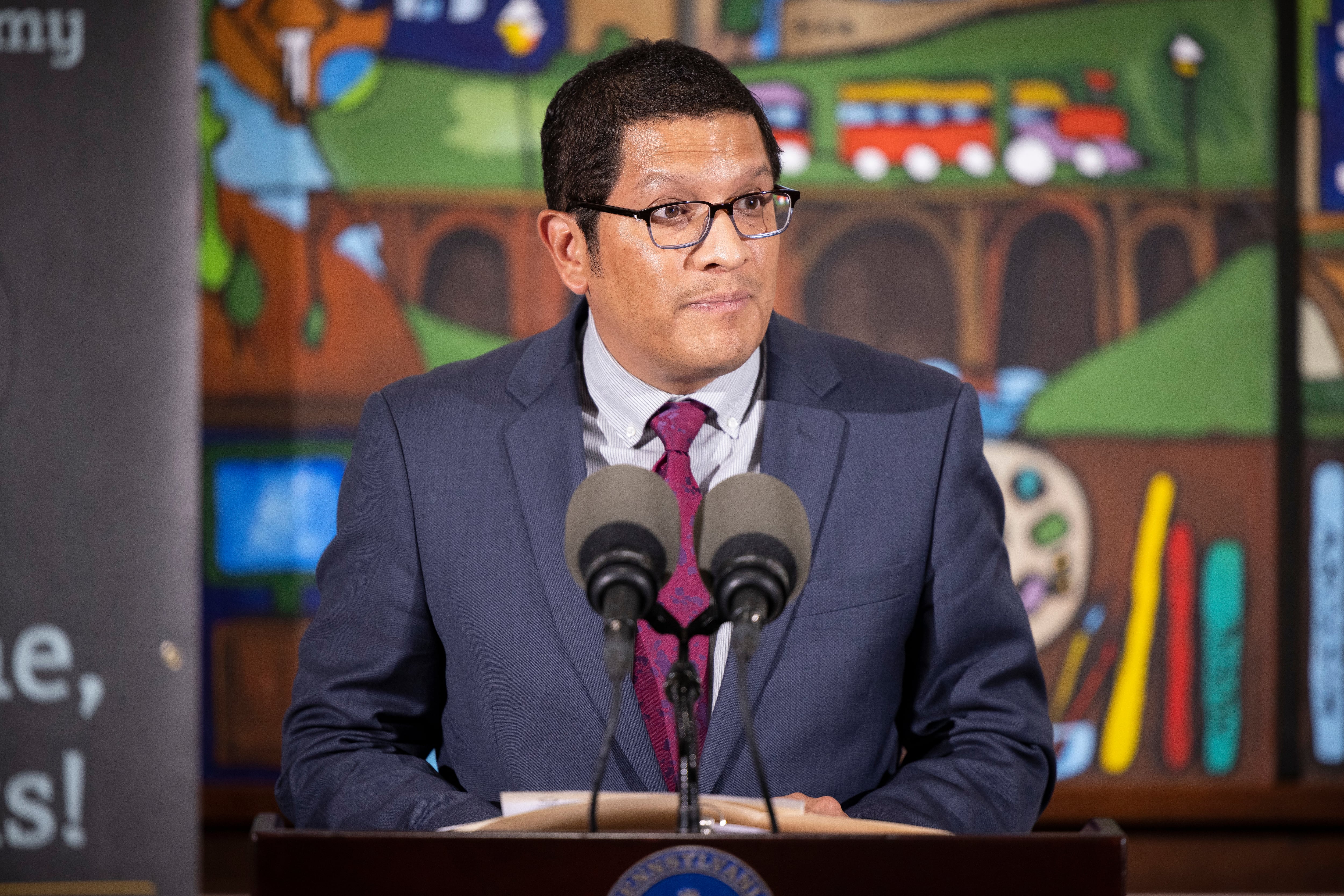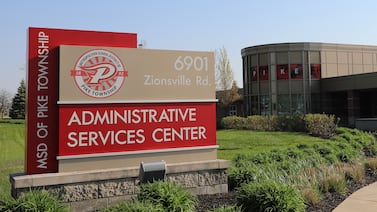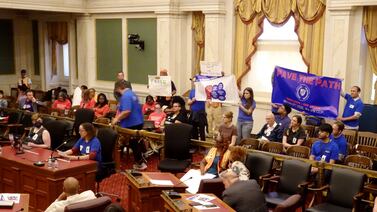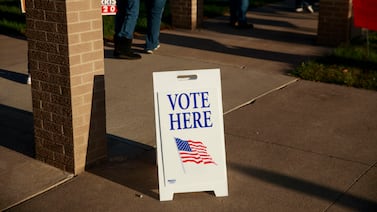Pennsylvania Secretary of Education Noe Ortega testified Tuesday at the fair funding trial that the state cannot reach its goals for post-secondary enrollment and completion without investing more in K-12 education.
He also said that wide gaps in post-secondary attainment between students of different racial and socio-economic groups are due to inadequate investment and inequitable distribution of resources.
Attorney Dan Urevick Ackelsberg of the Public Interest Law Center presented Ortega with data showing that while nearly half of white high school graduates from the class of 2011 – 46.3% – attained a college degree within six years, that number dropped to 19.9% for Black students and 20.7% for Hispanic students. For economically disadvantaged students, the number was also 19.9%. Overall, just 42% of Pennsylvania high school graduates attained a college degree.
“Can these disparities in college attendance and attainment be overcome without increasing investment in K-12 education? Ackelsberg asked.
“It would be difficult,” Ortega responded.
Karen Molchanow, executive director of the state board of education, testified earlier that Pennsylvania has an undereducated workforce, with just 50% having post-secondary credentials, putting it behind 29 states, Washington, D.C., and Puerto Rico. The state board has set a goal to reach 60% by 2025.
Ortega said that at the current rate for recent graduates, the state would not reach that goal, even when adding the 3% who achieved industry certifications.
The department believes “insufficient numbers of working-age Pennsylvanians have industry certification, insufficient numbers graduate from college, and there are significant disparities in post-secondary outcomes” depending on race and socio-economic status, Ortega said.
The historic case, which could reshape how education is paid for in Pennsylvania, was brought by six school districts, three families, and two statewide advocacy groups. It was originally filed in 2014 and is the first in a series of such cases to go to trial in Pennsylvania, where gaps among rich and poor districts are among the largest in the country and where the state share of total education spending ranks 47th.
Attorneys for Republican legislative leaders sought to exclude from evidence the post-secondary achievement data presented by the plaintiffs, which comes from the National Student Clearinghouse, a nonprofit that works with states, school districts, and colleges to match student records and create data sets to highlight workforce and education trends.
Commonwealth Court Judge Renée Cohn Jubelirer, who is hearing the case, allowed the testimony to proceed and said she would rule later on the admissibility question.
Ortega and Gov. Tom Wolf are also respondents in the case, but are not mounting a defense of the current funding system, unlike the GOP leaders.
Ortega also testified that, according to data collected under the federal Every Student Succeeds Act), the percentage of “highly effective” teachers declines in school districts as the percentages of Black, Hispanic and economically disadvantaged students increase.
In wealthy, white districts, 97% of teachers are highly effective, compared to 79% in poorer districts with more students of color. “As the share of students of color increases, (the percentage of teachers rated ineffective) becomes higher,” Ortega said.
In William Penn, the largest of the plaintiff districts, a quarter were rated ineffective – 116 of 447 teachers.
The trial is in its eighth week.








